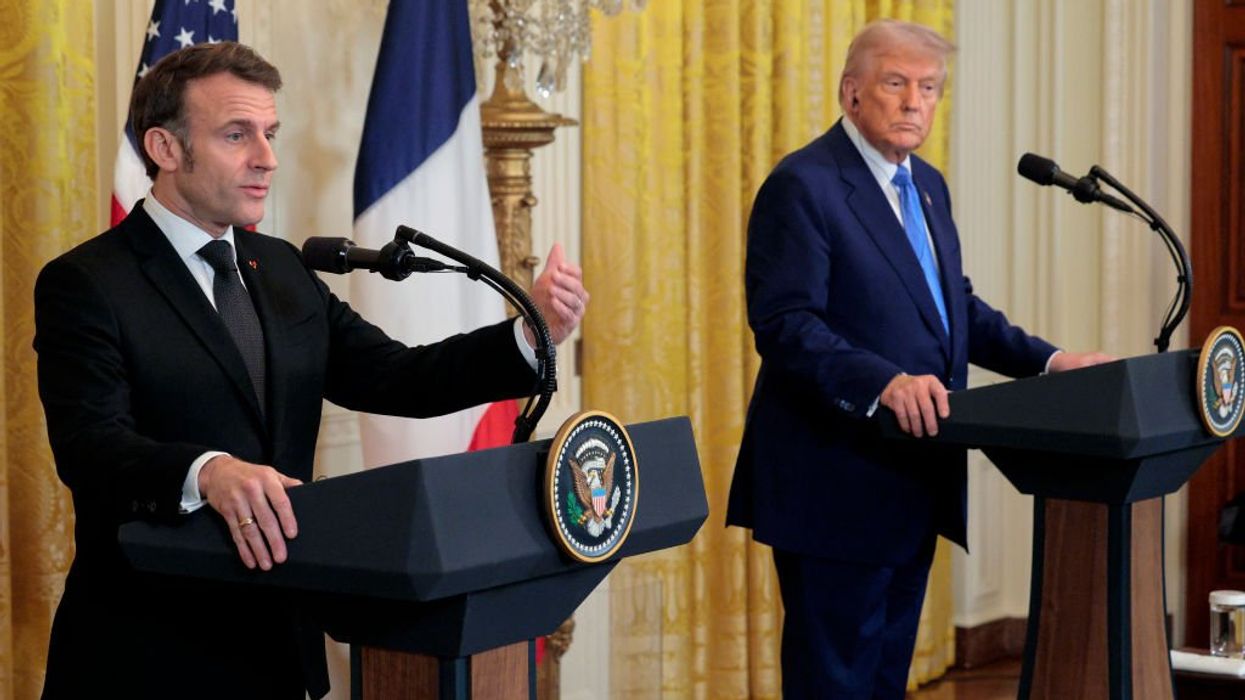Despite a tumultuous set of political activities this past week, an intriguing opportunity was revealed, one that points to what might be a more effective path toward healing our contemporary American Schism.
As has been discussed frequently in recent years, many of Trump’s unorthodox actions and pronouncements serve primarily as political theater. His unconventional and often outrageous statements deliberately deploy emotional triggers, which serve as stimuli to effectively delight his MAGA supporters on the one hand, while simultaneously enraging his opponents. The latter usually adopt one of two response strategies: they either take the bait and indignantly riposte in-kind, or they stay silent, exhausted by the frequency of Trump’s provocation. What has now become abundantly clear is that both of these responses play right into Trump’s hand. Silencing the “resistance” is Trump’s first goal. But should the opposition choose the other path and retort with a sanctimonious counter, the very substance of any substantive policy disagreement therein becomes veiled by the acrimonious tone, resulting in a Trump win here as well.
Neither of these reactions is effective. But what I believe might portend a more effective strategy was employed last week by French President Emmanuel Macron.
To understand this alternative approach, one has to recognize that Trump’s oratorical strategy typically relies on conflating two or more ingredients in one pronouncement, usually a rant. The first is a valid policy idea based on a politically unpopular partial truth that has merit and bears consideration; the second is an inflammatory distortion, a set of lies, or a rewriting of recent events that deflects the policy issue through the reaction it has triggered.
Case in point: Following Trump’s bilateral discussion with Putin last week, Trump’s plum pudding remarks conflated two completely distinct components: One, the idea of Europe needing to shoulder the costs of its defense going forward, which presents a reasonable policy debate. The other, a reprise of Putin’s propaganda—a warped rewriting of the recent history of Russia’s invasion commencing the Ukrainian war—was the lodestone that drew the loudest response.
And unsurprisingly, this week we did observe both foreseeable responses. Senate Republicans, with a few brave exceptions, chose silence. President Zelensky, whom Trump personally attacked, defensively retorted, and most Democrats displayed their disdain for the explosive rhetoric without commenting on the obscured substantive policy ideas.
But President Macro took a different approach.
His very notable speech bifurcated the various ingredients that Trump calculatedly muddled. First and foremost, Macron corrected the history by clearly articulating the truth that Russia was and still is the aggressor in the conflict. Second, he drew a clear line in the sand on policy, asserting that any peace settlement that ‘gives in' to Russia is unacceptable and will not be tolerated by the European Union. But third, on policy, he conceded the point to Trump. He explicitly accepted the legitimacy of the debate over burden-sharing within NATO (one of Trump’s consistent refrains), whilst at the same time, demonstrating that distorting historical facts to fit political narratives is unacceptable.
As Steven Jordan eloquently writes, Macron clearly called out the part of Trump’s rhetoric “which aligns with Putin’s revisionist history and shifts blame onto Zelensky. [Trump’s oratory] undermines the moral and strategic clarity needed to counter Russian aggression. Peace cannot be built on falsehoods, nor can Western security be maintained by ignoring reality.”
While Macron is facing tremendous domestic challenges amidst the parallel French schism (which, arguably, he himself has exacerbated), he is nonetheless emerging as the European leader with a veritable defense strategy for the continent. One that demands increased defense spending and less dependence on the U.S. He has embraced the reality that Europe has for too long relied on the U.S. for its defense and that, as Trump has suggested, Europe needs to shoulder the responsibility for its own security going forward.
Further, his maneuvering demonstrated his political savvy. Macron eschewed criticism of Trump and, instead, extricated the validity of Trump’s chosen path from the remainder of Trump’s jumble. He acknowledged the U.S. President’s right to step away from Europe and that European past and present dependence on the U.S. is no longer tenable. Macron, in a bold display of the leadership for which he rarely gets credit, framed this inevitable new direction as a challenge that Europeans must face. Convincing his European peers, such as Scholz and Starmer, to follow his lead will be no easy task, but by leveraging the reality of the pressure Europe faces to chart this new path, Macron’s words mark the end of an era and the beginning of a new one.
And he also teaches a lesson we all need to learn: Namely, if we are to survive Trump 2.0, we need to acquire and practice a new habit of responding to Trump’s logical ideas seriously, while still calling out his lies and not getting triggered by his bombast.
Seth David Radwell is the author of “American Schism: How the Two Enlightenments Hold the Secret to Healing our Nation ” and serves on the Advisory Councils at Business for America, RepresentUs, and The Grand Bargain Project.This is the third entry in the American Schism 2025 Series.



















Trump & Hegseth gave Mark Kelly a huge 2028 gift